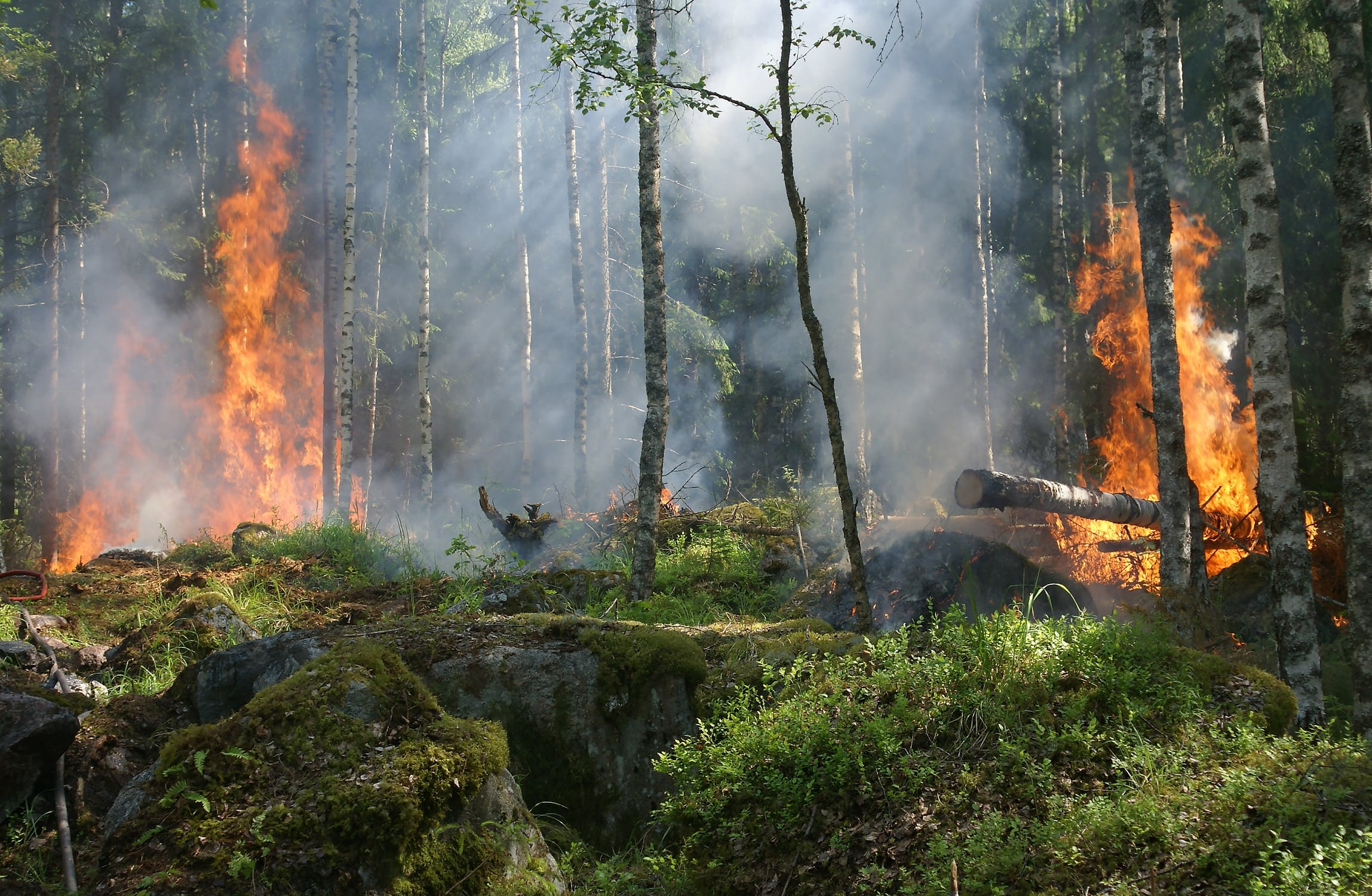Risk of Wildfire & Associated Risks
 Wildfires are devastating and can be extremely harmful to the world’s entire environment due to extreme climate changes, smoke, and fumes in the air, causing air pollution, consequent acid rain, etc.
Wildfires are devastating and can be extremely harmful to the world’s entire environment due to extreme climate changes, smoke, and fumes in the air, causing air pollution, consequent acid rain, etc.
While these are the consequences of our own mistreatment, we have carried on with Mother Earth that we now suffer through droughts and wildfires; keeping safe and staying on top of all the associated risks is essential.
Let’s take a look at some of the most common risk factors associated with wildfires you should be conscious about.
- Changing Weather Conditions
- Proximity to Forests
- Spreading Of Diseases
- Insect Infestations & Wild Animals
- Fuel in the form of Dead Trees
The biggest risk factor associated with wildfires is the changing weather conditions. From air density, humidity, and rising temperatures to the burning of fossil fuels and the amount of wind, these factors play a big part in creating conditions leading to wildfires.
We all saw through a world-class natural disaster a few years ago as the Amazonian rainforest was caught amidst raging wildfires causing severe damage and disruptions around the area and cultivating more hazardous weather conditions that aggravate more wildfires. Therefore, when the weather starts to change, it is a good idea to keep our alerts on and check news outlets for updates.
Many modern properties have expanded their occupancy. They are headed into the forest, with newer homes and properties being built near the forests. But no matter how beautiful the forest looks from your window or how close to nature it allows you to be – due to increased chances of wildfires every year, it puts you and your property in a high danger zone for being adversely affected by a wildfire. Therefore, for once, it is essential if you give up on the idea of having a forest view from your house and focus on prioritizing your safety and wellbeing.
Due to how thick, dense, and humid air can become due to wildfires – it is often hazardous to even breathe, let alone try to maintain normal whereabouts. In fact, often in places of wildfires, the aftermath can include diseases like breathing issues and lung problems. Sometimes, severe respiratory distress can land you in the emergency room if you already have an underlying condition or are immune-compromised.
Moreover, the burning of the woods and forests leads to all kinds of toxic fumes being led into the air. It can create a habitat for viruses and bacteria to manifest, increasing the risk of diseases spreading.
Naturally, forests are homes to millions of species, including insects. In the case of wildfires, their habitat is burning, so they would want to escape. It is harmful to the insects and animals to burn in the wildfire as it disrupts the natural system of the food chain, but their escaping the wildfires is dangerous for us humans too.
As consequently, they will make their way into urban land, leading to infestations and turbulent cases of wild animals making their way into town. So the risk of surviving a wildfire and making out alive without being attacked by an insect infestation or a wild animal is definitely not low.
It is important to note that a repeated result of wildfires is that there are too many dead trees in the densest of forests – causing them to thicken dangerously even more. As these dead trees, woods and plants become raw material for fuel, the fuel in as damp of an environment as a forest becomes a leading cause for starting another wildfire yet again. Limited water and space lead to these forests having dead branches that can become heated and catch on fire due to open skies and direct sunlight. Hence, the deadly cycle of being a wildfire put out but the forest not being clean can start all over again, causing even more harm than before.
Wildfires are natural disasters that can strike anytime. Understanding the risk you carry with its occurrence is important for your safety and wellbeing. Therefore, with warm weather approaching this year, ensure your and your home’s safety and pledge to plant trees to better the environment and end mitigate wildfires once and for all.
Has your home been destroyed due to a devastating wildfire?
At 911 Restoration, we serve our clientele with the best. We understand that property destruction in wildfires is one of the most destructive disasters. So give our experts a call after a fire has impacted your property. We will get started with the water and fire damage restoration today!
Call us at (763) 225-2528.


